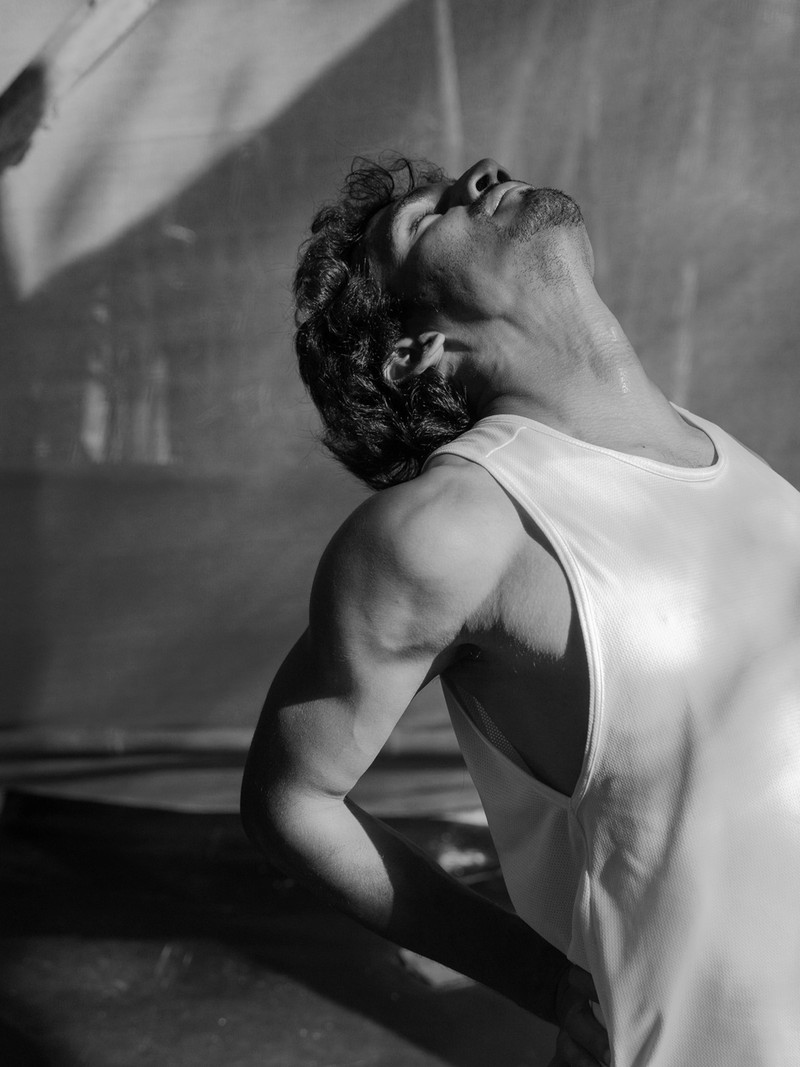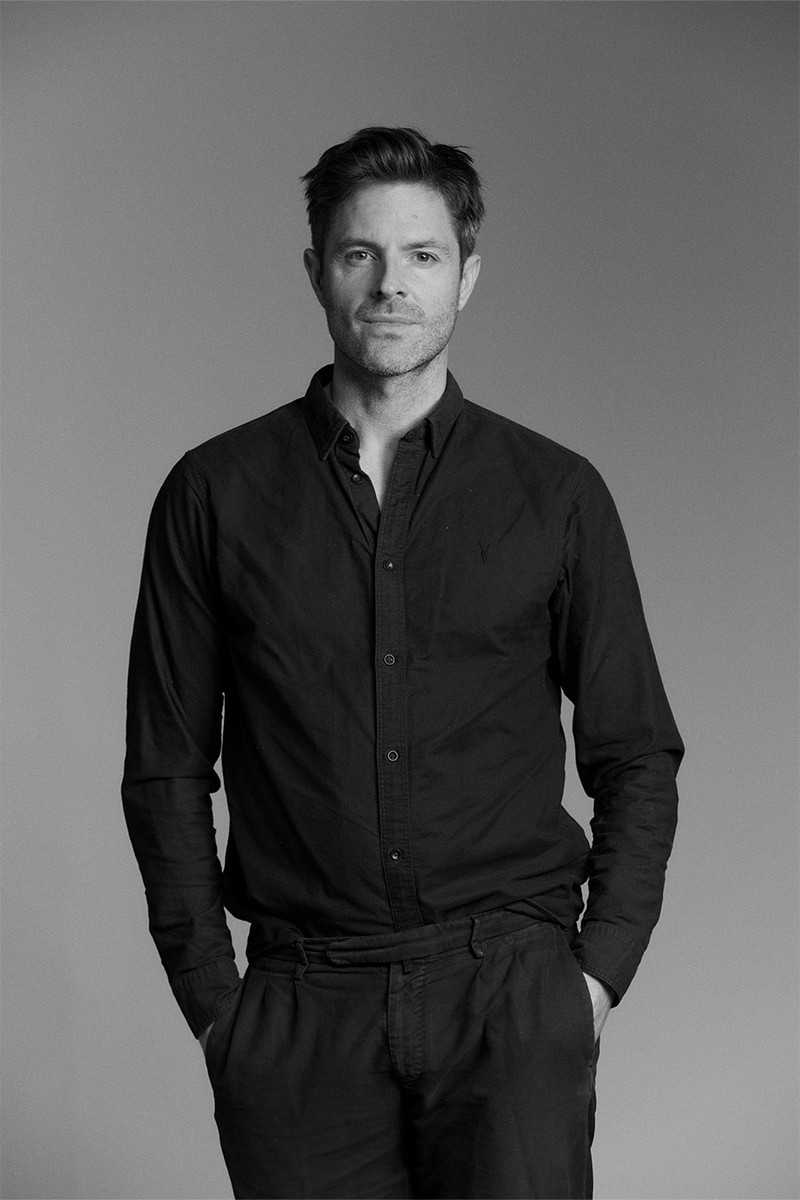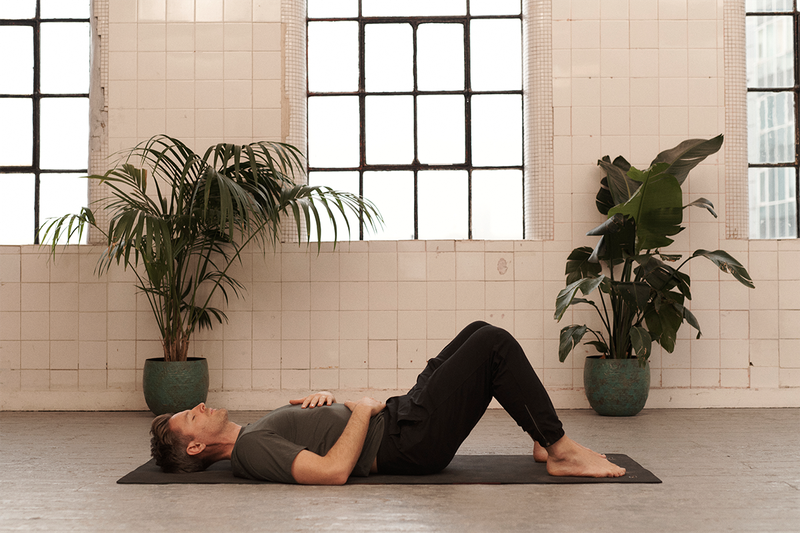
The Breathwork Coach Helping Men Perform At Their Peak
Breathwork isn’t just a practice – it’s a lifestyle. We breathe over 21,000 times a day, but most of those breaths go unnoticed. For me, breath is one of the pillars of wellness, alongside sleep, movement, nature, community and nutrition. Too many of us overlook these fundamentals in pursuit of quick fixes. Take care of the basics first – everything inside your body – before worrying about supplements and biohacking.
Stillness is a superpower. Masculine energy is often all about going 100% at everything – and that’s exactly where a lot of guys go wrong. Stillness, rest and reflection aren’t signs of weakness – they’re tools for clarity. The world is noisy, and men need rituals that help them hear themselves. Most guys don’t know resilience is a skill you can train. I use tools like breathwork, cold exposure, sauna and sound to teach clients how to respond to stress rather than react. The body remembers, and if you learn to breathe through challenge – in a controlled environment – you build that same capacity for life.
If you want more energy and focus, you need to ask yourself some questions. Do I create good conditions for sleep? How do I breathe, moment to moment? Do I have a movement practice? How often do I get into nature? Who am I spending time with – and how do they affect me? These aren’t surface-level checklists – they’re questions we should be asking ourselves to build true self-awareness.
Exercise isn’t just about reps and results. I love mixing it up – from fast-paced calisthenics to heavy resistance training to yoga and Pilates. I like to feel the full spectrum – the heart rate climbing, then dropping. My average week of training is varied: yoga on Monday and Thursday, heavy weights on Tuesday, Pilates on Wednesday, calisthenics on Friday, resistance work on Saturday. Sunday is for recovery – mentally and physically.
Nutrition doesn’t need to be complicated. I’ve got great friends who are expert nutritionists, and I work closely with them. When it comes to supplements, get tested first with a full blood MOT. But for a simple baseline, vitamin D, omega-3s, B12, folate and 10g of creatine per day are what I personally take. Creatine isn’t just for gym bros – it’s amazing for brain health too.
Burnout doesn’t always show up as stress – it can sneak in. Many men don’t even realise they’re stressed. Stress doesn’t always manifest as anxiety – it can look like brain fog, disconnection, not celebrating wins, not feeling hungry or snapping at loved ones. My SABRES framework (Sleep, Arousal management, Breathwork, Rest, Effort and Self-esteem) is a diagnostic tool I use with clients to pinpoint where imbalance may be coming from. I also work with Solice Health for more in-depth biomarker analysis, looking at things like cortisol and inflammation, so we can tackle both the visible and hidden stressors.
Tech can be helpful – until it’s not. I used wearable tech for a year to help align internal and external cues – how I was feeling versus what the data said. But if you wake up and your first thought is to check your sleep score and HRV instead of checking in with yourself, it’s time to reassess. The moment tech becomes stress-inducing, it’s doing more harm than good.
Box breathing is the five-minute fix you’re not doing. After a long day, it’s my go-to breathwork technique. Inhale for five, hold for five, exhale for five, hold for five. I’m currently experimenting with a longer exhale: 4-4-8 with legs up the wall, which is incredibly restorative. I’ve got a nine-month-old, a busy travel schedule, and a full client roster, so box breathing is a non-negotiable at the end of a busy day.
The secret to better sleep starts in the morning. Your bedtime routine starts as soon as you wake up. Everything you do during the day impacts your circadian rhythm. Get sunlight first thing, move your body, do some breathwork or meditation – do this consistently for three weeks and you’ll start sleeping better. Ultimately, resilience in the nervous system helps you return to baseline.
Becoming a dad has reshaped my self-care priorities. My sleep isn’t what it used to be, so I’ve leaned into yoga nidra and non-sleep deep rest sessions for recovery. Making sure my wife and I both have time and space to take 15 minutes for some breathwork or meditation is a priority too. And when I do sound work, my son joins in – I can almost feel his nervous system relax.
Connection is a form of healing. Community is medicine, which is why I host retreats and in-person gatherings. But connection doesn’t have to be big or spiritual – even a micro interaction with a barista can make a difference. The more you expose yourself to groups, especially ones outside your comfort zone, the more you grow.
If it feels like a chore, it won’t stick. Guys tend to give up on wellness routines when they feel like a chore, or they don’t feel like they’re doing it ‘right’. That’s why education and enjoyment are crucial. You have to know why you’re doing something – and ideally, you don’t hate it. If stillness makes you feel uncomfortable, that’s your growth edge, and exactly where you need to go.
The best mental health tools are often the simplest. Walk in nature. Breathe through your nose. Do both at the same time. It works. Don’t underestimate the power of stillness either. Every man should take two minutes every morning to sit upright, close his eyes and do absolutely nothing, just be. Don’t fidget, and don’t check your phone. It sounds easy, but it’s incredibly powerful – and surprisingly hard. But it’s the small habits that can change everything.
Discover more at RobRea.co.uk
DISCLAIMER: We endeavour to always credit the correct original source of every image we use. If you think a credit may be incorrect, please contact us at [email protected].


/https%3A%2F%2Fslman.com%2Fsites%2Fslman%2Ffiles%2Farticles%2F2025%2F05%2Fslman-the-breathwork-coach-helping-men-perform-at-their-peak-2-new.png?itok=13U8v2NH)

